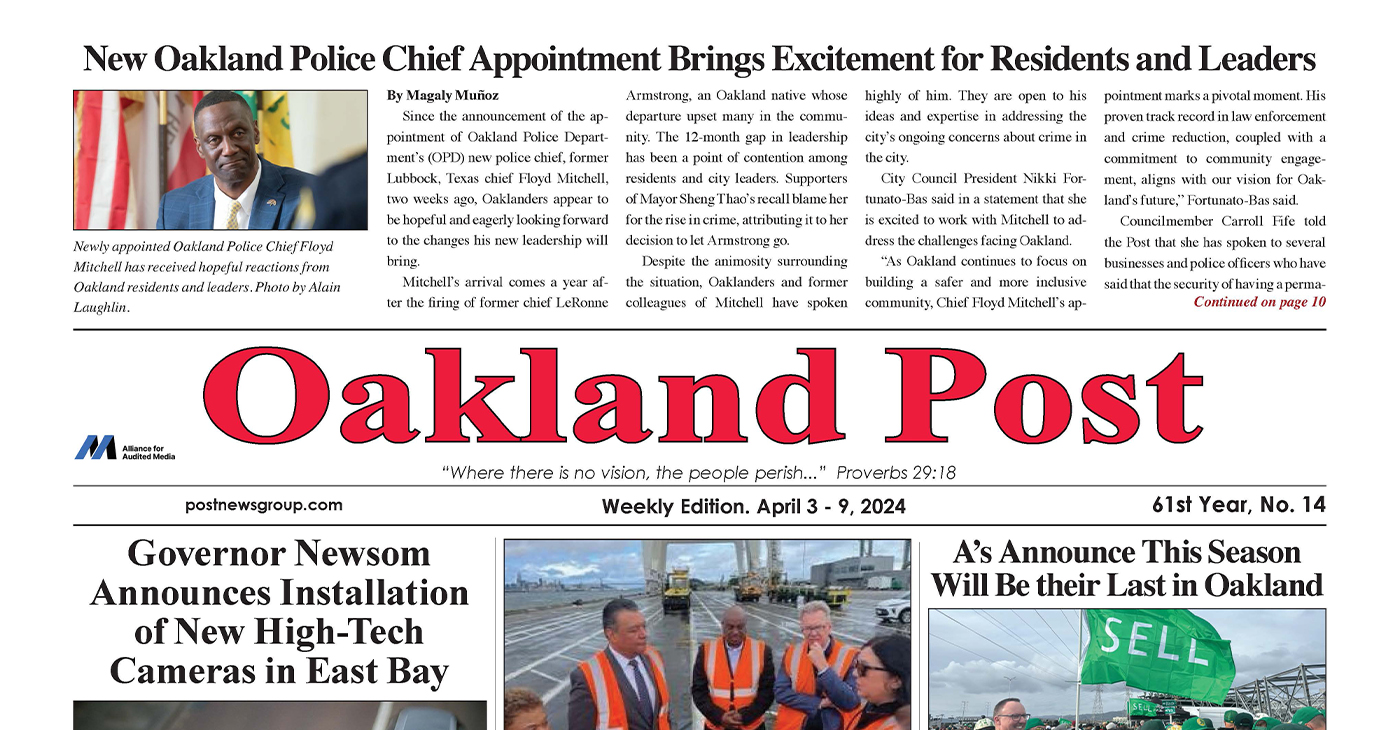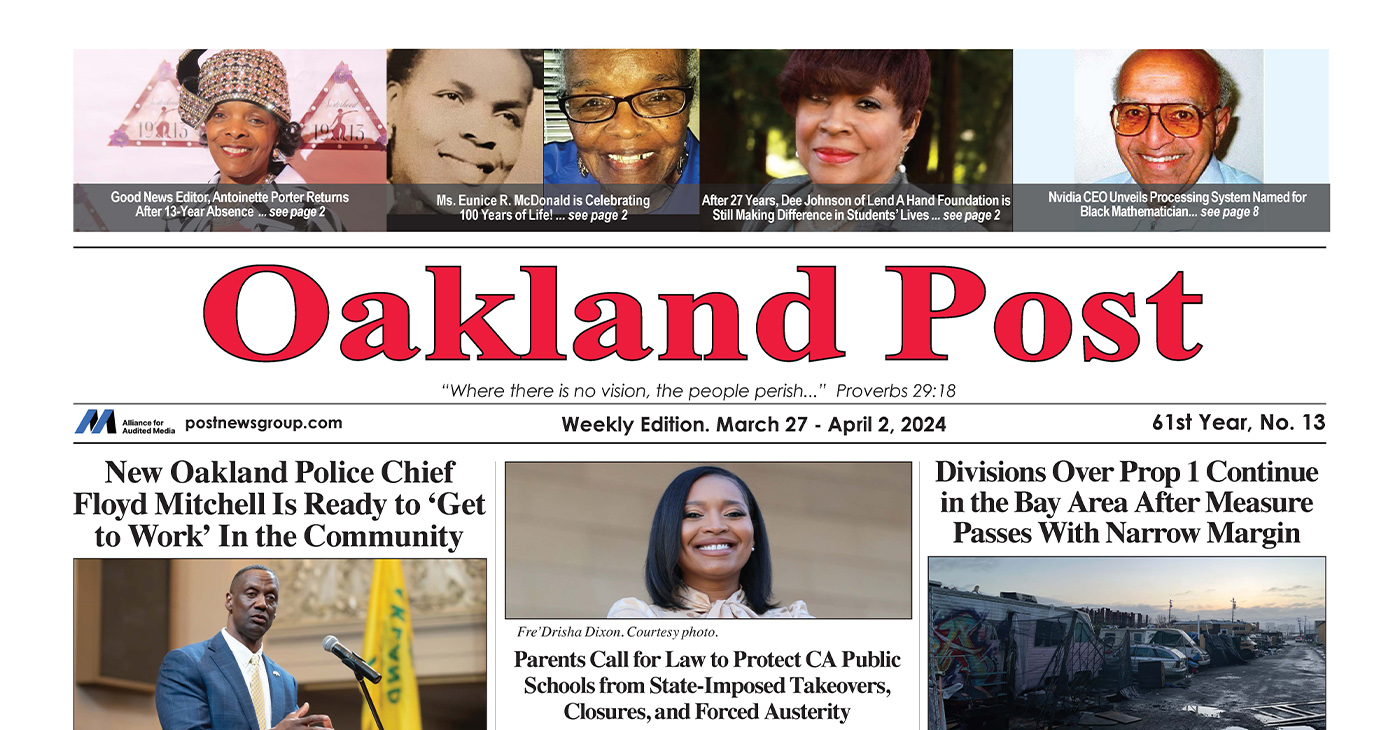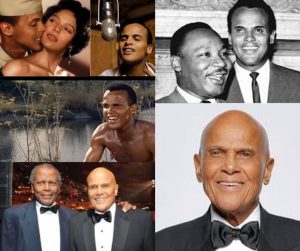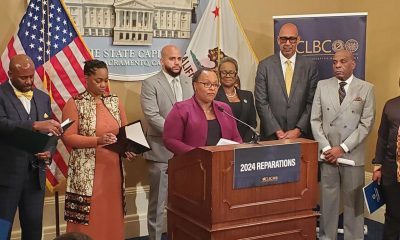Bay Area
African American or Other? Selecting Your Race and Ethnicity on the U.S. 2020 Census Form

Kim Kardashian West will likely check “Black or African American” on the U.S. 2020 Census form when marking the race of her children.
The famous media personality and businesswoman, who lives in the San Fernando Valley near Calabasas, has said in interviews that she’s very conscious of race when it comes to her and rapper Kanye West’s four children.
Kardashian has said she identifies the race of her children as “Black” and says the advocacy she has recently been involved in — addressing racial inequities in the criminal justice system — is partly inspired by the race of her children.
On this year’s census form, Kardashian’s other option for checking the race box to identify her children would be to select “Other.” That’s if she chooses to count them as bi-racial or mixed race.
Race and ethnicity have often been — and continue to be — controversial and misunderstood census categories. Experts suggest that some people might be confused about the difference between the two.
On the 2020 census forms, there will be six ways people can identify their race: American Indian or Alaska Native; Asian; Black or African American; White; Native Hawaiian or Pacific Islander; and Other.
Options will also be available for respondents to include an ethnic identification, too. For instance, a Trinidadian-American of African descent may select “Black or African American” under the racial category and write in “Trinidadian” under the ethnic category.
According to the Census Bureau, “Overlap of race and Hispanic ethnicity is the main comparability issue.” For example, the U.S. Census Bureau includes Black Hispanics in both the number of Blacks and in the number of Hispanics.
Dr. Walter Hawkins, former California State University San Bernardino Director of Research and Policy Analysis, helped clear up some of that confusion by detailing the numerous ways people can self-identify on U.S. 2020 Census forms, mentioning the “100 percent count.”
“Under the Census Bureau, in order to get the 100 percent count, they have to use what’s called the ‘Hispanic exclusive method’ because a person who is Hispanic can be any race. So, if you do not take that into consideration, you end up with over 100 percent,” said Hawkins.
Hawkins stated that this distinction affects the overall count for African Americans in California.
“The Black alone ‘non-Hispanic’ population in California is about 2.2 million compared to about 2.7 million if all racial and ethnic combinations are included,” Hawkins said.
Hawkins noted that much of the complication with racial self-identification originated from an old census rule called “head of household.”
“If you marked ‘Black,’ your whole house was Black. And if you marked ‘White,’ your whole house was White,” Hawkins said.
Data collected during national censuses, which the federal government conducts every 10 years, directly impacts not only the availability but also the quality of services in communities, according to Dr. Anthony Asadullah Samad, executive director of the Mervyn Dymally African American Political and Economic Institute (MDAAPEI) at California State University Dominguez Hills.
Census counts also determine the number of representatives a state is allotted in the U.S. Congress.
“Cultural identity is important to every community. First, in understanding presence. Second, in understanding population growth,” Samad said. “Every ethnicity faces this challenge in the upcoming census, including Latinos and Asian Pacific Islanders, because demographic descriptions speak to a particular community’s service needs.”
According to Samad, African Americans have been at a disadvantage in this regard.
“For the last three censuses, there have been African-American undercounts,” Samad said. “The only ethnicity with larger undercounts have been Native Americans, largely due to their populations being on sovereign lands that limit census-taker access.”
According to the Census Bureau, the population of Black or African-American people who did not identify with any other race in 2018 counted for 6.5% of the overall population in California.
Whereas, the population of people who identified as mixed race made up 3.9% of the state’s overall population.
The mixed population counts as its own category, making it unclear how many of these people have African heritage.
Samad pointed to another factor that might skew the amount of African Americans being accounted for in the Census: Fear.
“Black people have legitimate fears for sharing information with the federal government for numerous reasons,” Samad said. “However, there hasn’t been sufficient education tying the Census to the community’s welfare.”
Activism
Oakland Post: Week of April 10 – 16, 2024
The printed Weekly Edition of the Oakland Post: Week of April 10 – 16, 2024

To enlarge your view of this issue, use the slider, magnifying glass icon or full page icon in the lower right corner of the browser window. ![]()
Activism
Oakland Post: Week of April 3 – 6, 2024
The printed Weekly Edition of the Oakland Post: Week of April 3 – 6, 2024

To enlarge your view of this issue, use the slider, magnifying glass icon or full page icon in the lower right corner of the browser window. ![]()
Activism
Oakland Post: Week of March 27 – April 2, 2024
The printed Weekly Edition of the Oakland Post: Week of March 27 – April 2, 2024

To enlarge your view of this issue, use the slider, magnifying glass icon or full page icon in the lower right corner of the browser window. ![]()
-

 Activism3 weeks ago
Activism3 weeks agoOakland Post: Week of March 20 – 26, 2024
-

 #NNPA BlackPress3 weeks ago
#NNPA BlackPress3 weeks agoMayor, City Council President React to May 31 Closing of Birmingham-Southern College
-

 #NNPA BlackPress3 weeks ago
#NNPA BlackPress3 weeks agoFrom Raids to Revelations: The Dark Turn in Sean ‘Diddy’ Combs’ Saga
-

 #NNPA BlackPress3 weeks ago
#NNPA BlackPress3 weeks agoCOMMENTARY: D.C. Crime Bill Fails to Address Root Causes of Violence and Incarceration
-

 #NNPA BlackPress3 weeks ago
#NNPA BlackPress3 weeks agoCOMMENTARY: Lady Day and The Lights!
-

 #NNPA BlackPress3 weeks ago
#NNPA BlackPress3 weeks agoBaltimore Key Bridge Catastrophe: A City’s Heartbreak and a Nation’s Alarm
-

 #NNPA BlackPress3 weeks ago
#NNPA BlackPress3 weeks agoBaltimore’s Key Bridge Struck by Ship, Collapses into Water
-

 Activism2 weeks ago
Activism2 weeks agoOakland Post: Week of March 27 – April 2, 2024














































